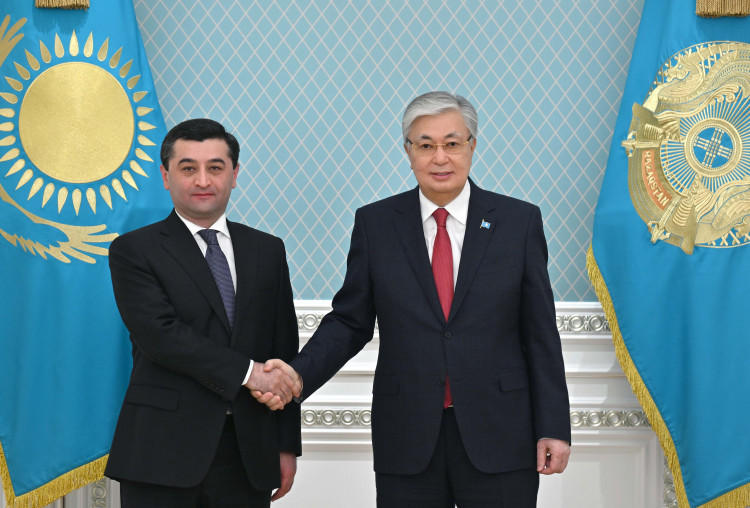ASTANA – Kazakhstan attaches utmost importance to the development of cooperation with brotherly Uzbekistan, said President of Kazakhstan Kassym-Jomart Tokayev during a Feb. 19 meeting with the Uzbek Foreign Minister Bakhtiyor Saidov, reported Akorda press service.

Photo credit: akorda.kz
Welcoming Saidov, the President emphasized Kazakhstan’s readiness to continue supporting Uzbekistan’s initiatives for the welfare and prosperity of the peoples of the region.
During the meeting, the sides discussed prospects for expanding trade and economic cooperation, increasing the volume of trade turnover between the two countries and outlined the importance of finding new growth points. Water sector and regional security in Central Asia were also high on the meeting agenda.
Tokayev focused on strengthening cooperation in the transit and transport sector, reiterating the construction of the Darbaza-Maktaraal railway line with access to the border with Uzbekistan, which will help increase the volume of cargo transportation.
In turn, Saidov shared plans for joint work to ensure the adequate implementation of previously reached agreements.
During the meeting with Kazakh Deputy Prime Minister and Foreign Minister Murat Nurtleu, the parties addressed bilateral cooperation prioritizing political, economic, water-energy, transit-transport and cultural-humanitarian interaction.
“Uzbekistan is a reliable ally and an important strategic partner of Kazakhstan. We sincerely welcome and highly appreciate the new achievements of your country in many areas,” said Nurtleu.
Nurtleu and Saidov highlighted the importance of deepening economic cooperation. Kazakhstan is one of the three largest trading partners of Uzbekistan. In recent years, bilateral trade turnover has consistently exceeded $4 billion.
The counterparts agreed to increase mutual trade to $10 billion and expand business ties. The sides underlined the importance of implementing the project to construct the Central Asia International Center for Industrial Cooperation on the Kazakh-Uzbek border, the launch of which will facilitate trade, economic and investment ties.
According to the sides, the industrial cooperation witnessed significant progress with 12 joint projects worth $156 million. The countries will launch 21 more projects worth nearly $1 billion.
The parties also considered the development of cultural and humanitarian ties, which are the basis of strong and long-term relations between the two states.
To revive spiritual values, it was proposed to conduct joint research to study and popularize the common cultural and humanitarian heritage.
